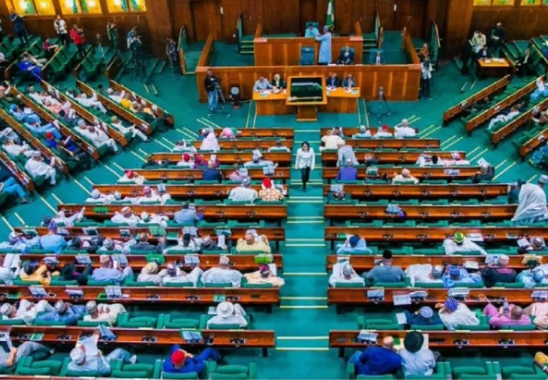…House to reconsider five failed constitution amendments Wednesday
The House of Representatives on Tuesday voted against key constitutional amendment bills, including a proposal to rotate the offices of the President and Vice President among Nigeria’s six geopolitical zones, as well as a bill seeking to strip the Independent National Electoral Commission (INEC) of its power to register and oversee political parties.
These were among seven constitution alteration bills slated for consideration during the plenary. Out of the total, five failed to scale through. However, following a point of order raised by Deputy Minority Leader, Rep. Ali Jesse, citing Order 9, Rule 6 of the House Standing Orders, Speaker Tajudeen Abbas directed that the rejected bills be re-listed for reconsideration on Wednesday, May 14, 2025.
The rule invoked requires that any decision of the House can only be rescinded through a substantive motion on notice. Consequently, the Committee on Rules and Business was tasked with ensuring the motion for rescission appears on the next Order Paper.
To expedite proceedings, the House had earlier suspended its rules to allow for concurrent debate on all seven bills.
The bill proposing a rotational presidency generated the most intense debate. Opponents argued that enshrining zoning in the constitution could deepen ethnic divisions and disrupt the merit-based political process. Deputy Minority Leader, Hon. Aliyu Sani Madaki, noted that the existing Federal Character principle already supports inclusive governance and said political zoning should remain an internal party matter, not a constitutional mandate.
Supporting this view, Hon. Sada Soli warned that legislating zoning may sacrifice competence for regional representation. Hon. Shina Peller raised concerns about potential intra-zonal disputes, asking: “If it’s the South West’s turn, who decides between Oyo or Ogun?”
Hon. Bello El-Rufai questioned the rigidity of such a system, citing a scenario where a President dies in office and the Vice President is from another zone. “Would he be expected to resign? That could destabilize the country,” he warned.
Hon. Olumide Osoba described the proposal as a political innovation that should not be legislated, arguing that parties should retain the flexibility to choose their candidates.
Despite the opposition, a few lawmakers backed the bill. Minority Whip, Rep. Ali Isa, strongly advocated for rotational presidency and urged its extension to governorships. He proposed that the North East should produce the next president in 2027 to promote fairness and inclusion.
Also supporting the bill, Hon. Clement Jimbo said it would address the historical marginalization of certain regions. He suggested inserting a sunset clause to phase out the zoning arrangement after each geopolitical zone has had a turn at the presidency.
Other constitution amendment proposals debated included a bill to enhance the autonomy of State Auditors-General for Local Governments and FCT Area Councils, aiming to improve transparency at the grassroots level.
Another bill sought to create Ughelli East Local Government Area in Delta State. The House also considered a proposal to increase the number of Federal High Court judges to at least 100, with future expansion determined by legislation. A separate amendment sought to extend the court’s jurisdiction to cover admiralty law, including inland waterways and federal ports.
Additionally, one bill proposed empowering the National Judicial Council (NJC), alongside the National Salaries, Incomes and Wages Commission, to set and periodically review the salaries and allowances of judicial officers and staff.
Speaker Abbas reiterated the House’s commitment to reviewing each bill on its own merit and instructed the Rules and Business Committee to ensure their inclusion on Wednesday’s Order Paper.

